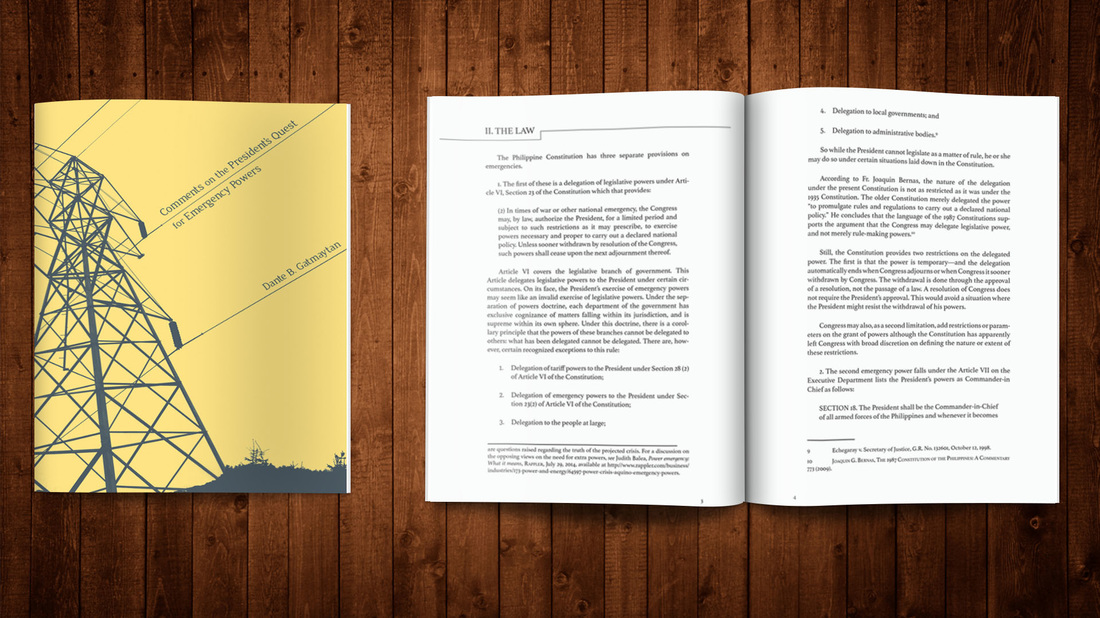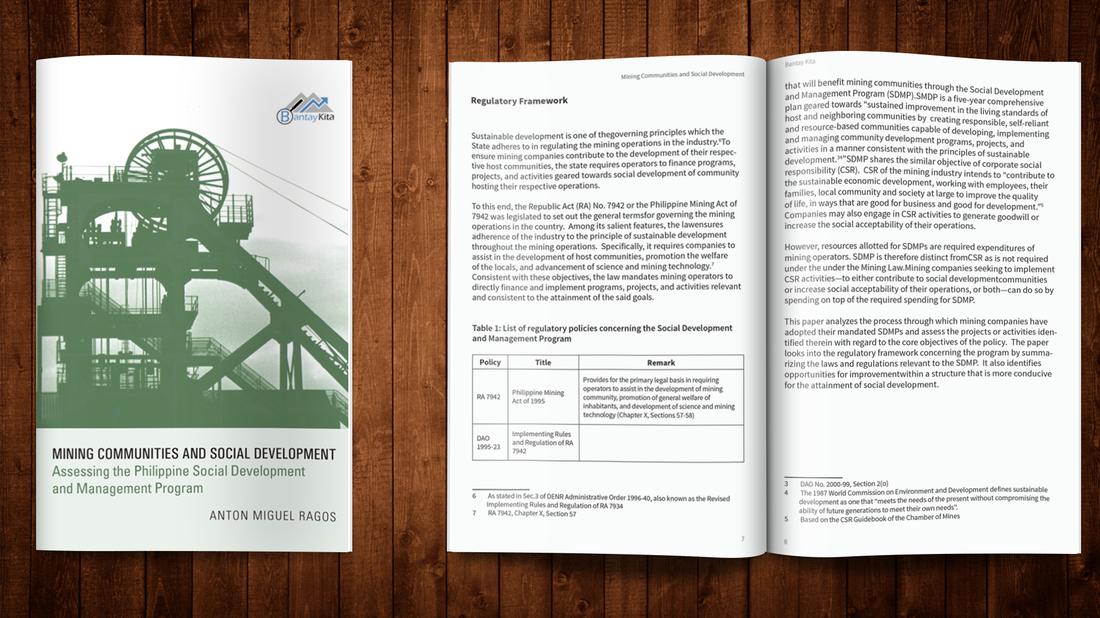Excerpt:The idea of a President exercising emergency powers brings horrible memories in the Philippines. Emergency power is associated with the brutal martial law regime of the late dictator Ferdinand E. Marcos which lasted for more than a decade. In truth, Marcos did not have a monopoly on the exercise of emergency powers. Since the adoption of the 1935 Constitution, Presidents have been given emergency powers for a variety of reasons.4 Not too long ago, President Fidel V. Ramos was granted emergency powers to deal with the power crisis in the 1990s.5 President Estrada mobilized the Philippine Marines to deal with the rising criminal activities during his term.6 President Gloria Macapagal-Arroyo issued Proclamation No. 1959 declaring martial law in President in the Province of Maguindanao in response to the Maguindanao massacre. About the Author:Atty. Dante Gatmaytan is a Professor in the UP College of Law where he teaches Constitutional Law, Legal Method, and Local Government Law. Before he entered the academe in 1998, he practiced law through public interest law offices working with rural poor communities involved in environment and natural resources law, indigenous people's rights, agrarian reform, and local governance. He graduated with a Bachelor's Degree from Ateneo de Manila (B.S. Legal Management) in 1987 and a law degree (LLB) from the University of the Philippines in 1991. He holds Masters Degrees from Vermont Law School (cum laude) and the University of California, Los Angeles. Content:
Excerpt:Currently, the state mandates mining operators to actively take part in the development of their respective host communities. Mining operators in the country are required to directly spend for and implement programs that will benefit mining communities through the Social Development and Management Program (SDMP).SMDP is a five-year comprehensive plan geared towards “sustained improvement in the living standards of host and neighboring communities by creating responsible, self-reliant and resource-based communities capable of developing, implementing and managing community development programs, projects, and activities in a manner consistent with the principles of sustainable development.34”SDMP shares the similar objective of corporate social responsibility (CSR). CSR of the mining industry intends to “contribute to the sustainable economic development, working with employees, their families, local community and society at large to improve the quality of life, in ways that are good for business and good for development.” Companies may also engage in CSR activities to generate goodwill or increase the social acceptability of their operations. About the author:Anton Miguel Ragos is a researcher from Action for Economic Reforms, a non-government organization conducting policy analysis and advocacy on key issues of economic reforms and access to information policies. He has written on various fiscal policy issues, particularly on tax policy reforms. He is currently an MA Economics student at the UP School of Economics. Contents
Type
|
||||||||||||
What We Do |
Know More |
About Us |
Contact Us
[email protected] | +(63) 917 5105 879 1402 West Trade Building, West Avenue, Brgy. Phil-Am, Quezon City, Philippines |


